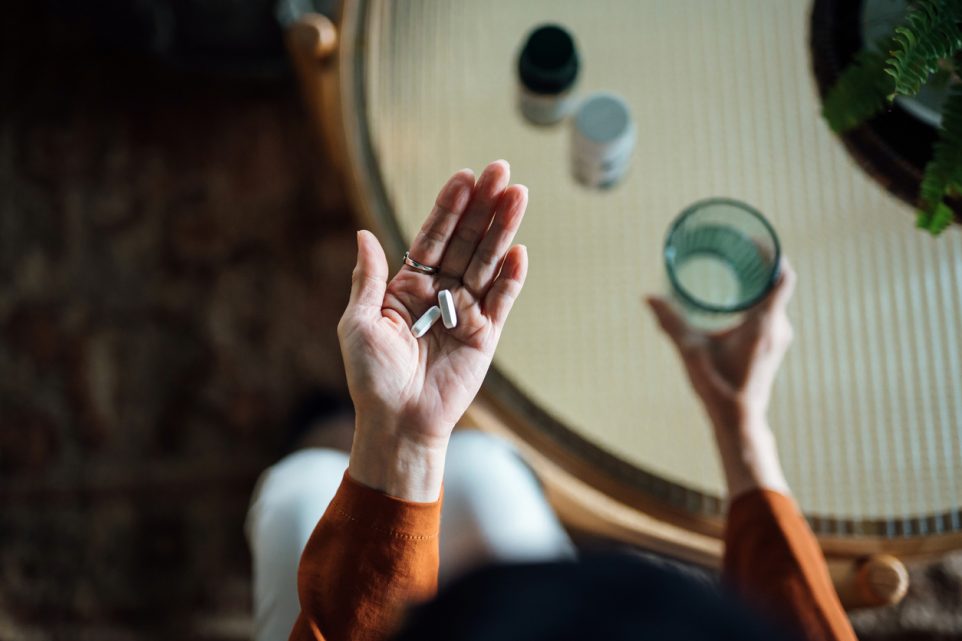10 Best Supplements That Can Help With Anxiety

Among the myriad of treatments available for anxiety, natural supplements have garnered significant attention for their potential benefits without the reliance on conventional medications. Understanding these options can be crucial for individuals seeking alternative or complementary approaches to manage their anxiety effectively.
Magnesium
Magnesium is critical for maintaining a myriad of physiological processes, especially those that regulate brain function and mood. It acts as a gatekeeper for NMDA receptors, which are involved in brain development, memory, and learning. It helps prevent the overstimulation of neurons that can lead to neuronal damage, thus exerting a calming effect on the nervous system. Anxiety symptoms often correlate with magnesium deficiency, manifesting as increased nervousness and irritability. By supplementing with magnesium, particularly in forms like magnesium glycinate or citrate, individuals may experience an improvement in these symptoms. Additionally, magnesium aids in the regulation of cortisol levels, reducing the impact of the body’s stress response system.
Omega-3 Fatty Acids
Omega-3 fatty acids, such as EPA and DHA, are pivotal in maintaining brain health. These fatty acids are integral components of cell membranes and are crucial for the fluidity and function of brain cells. Omega-3s also modulate the dopaminergic, serotonergic, and norepinephrine systems in the brain, which are directly related to mood and anxiety. Regular consumption of omega-3 supplements, particularly those with a higher ratio of EPA to DHA, can help reduce inflammation and promote a healthier brain chemical balance, potentially alleviating anxiety and mood swings.
Vitamin D
Vitamin D receptors are widespread throughout the brain, suggesting its significant role in brain function and mental health. This vitamin is crucial for synthesizing neurotransmitters like dopamine and serotonin, which have profound impacts on mood. Deficiency in vitamin D has been associated with an increased risk of mood disorders, including anxiety and depression. Supplementing with vitamin D can improve cognitive function and mood regulation, particularly in individuals with limited exposure to sunlight or those living in northern climates, where natural sunlight is scarce during winter months.
Zinc
Zinc is another mineral that plays a vital role in neurological function and mental health. It influences how neurons communicate and can have a calming effect on the nervous system. Zinc regulates the body’s response to stress and has been shown to inhibit the activity of the NMDA receptors and increase the action of GABA, the primary inhibitory neurotransmitter. Low levels of zinc are frequently associated with heightened anxiety and depressive symptoms. Supplementing with zinc can help correct these deficiencies and potentially reduce anxiety symptoms. It also supports overall immune function, which can be compromised by chronic stress and anxiety.
L-Theanine
L-Theanine is an amino acid predominantly found in green and black tea leaves and some mushrooms. Known for its ability to promote relaxation without sedation, L-Theanine can increase the levels of GABA, serotonin, and dopamine in the brain. These neurotransmitters are crucial for regulating emotions, mood, concentration, alertness, sleep, energy, and other cognitive skills. L-Theanine also helps to reduce the levels of the stress hormone cortisol in the body. Research suggests that L-Theanine may help to mitigate the physiological responses to stress and reduce anxiety. For individuals dealing with anxiety, supplementing with L-Theanine can be particularly beneficial as it enhances the brain’s ability to manage stress and anxiety while promoting a state of calm alertness.
B-Complex Vitamins
B-Complex vitamins comprise a group of eight water-soluble vitamins that play vital roles in cell metabolism and synaptic function. This group includes B1 (thiamine), B2 (riboflavin), B3 (niacin), B5 (pantothenic acid), B6 (pyridoxine), B7 (biotin), B9 (folate), and B12 (cobalamin). Each of these vitamins has a unique function within the brain and nervous system and is essential for the production and regulation of neurotransmitters, such as serotonin and dopamine. For example, deficiencies in vitamins B12 and B6, in particular, can lead to increased levels of homocysteine, an amino acid linked to neurodegenerative diseases and mood disorders, including anxiety. Supplementing with a B-Complex can ensure that these crucial nutrients are available to support the nervous system’s health, enhance mood regulation, reduce fatigue, and boost cognitive function.
Probiotics
Probiotics are live bacteria and yeasts that are beneficial for digestive health. Emerging research suggests that there is a significant link between gut health and brain function, often referred to as the gut-brain axis. Probiotics help to balance the gut microbiota, which in turn can influence brain health. They may enhance the production of neurotransmitters like serotonin and dopamine and modulate the immune response, which can have a profound effect on mood and anxiety levels. Several studies have shown that certain strains of probiotics can help reduce psychological distress and anxiety by lowering inflammation and cortisol levels. Incorporating probiotics into one’s diet through supplements or fermented foods like yogurt, kefir, sauerkraut, and kimchi can be an effective strategy to manage anxiety and bolster overall mental health.
Building a Stronger You
Supplement Institute is the fruit of extensive online publishing experience, spanning the breadth of SEO strategies to the nuances of paid advertisements. Our journey, marked by significant achievements and learning moments, inspires our core mission: to empower our readers with an abundance of information. By sharing insights and key learnings, we aim to provide you with the knowledge needed to navigate the complex world of supplements, helping you make well-informed decisions for your health and well-being. Welcome to Supplement Institute, where information is your greatest supplement.